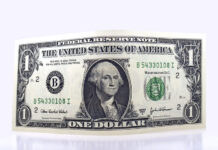When an individual takes a credit card loan or decides to opt for an installment loan which includes an auto loan, student loan, or personal loan, the person vows to repay the loan while paying a certain amount or percent every month. the amount is inclusive of the interest or any fee, which at the time of loan agreement the person agreed to pay. In case the person fails to pay the debt once a month, the creditor might issue a report to the credit bureaus stating the person is late. However, if you fail to pay the debt several times then the creditor would consequently charge off your account. Therefore, the term charge off simply implies that the creditor has taken off the debt from the respective individual’s shoulder who failed to repay the debt.
In case you need to pay off the debt, while your account does not have enough funds to pay then ultimately you will be left with an unpaid charge. This may happen to any type of debt or loan, as mentioned above, credit card loan or installment loan. Nonetheless, the debt could be of any type, the term charge off could be described as the last resort which the creditor opts for. The creditor states the debt as a loss for the company and believes that the individual is unable to pay the amount back hence, he states the account as a charge off.
However, let me clear the air here, even though the creditor designates it as a loss the responsibility still lies on your shoulder and you are not free. You must pay the debt. Because as a matter of fact, the charge-off will remain on your credit history and it will be mentioned in your credit report for up to a long duration of seven years. Therefore, you must pay the debt, including the interest or fee you agreed upon.
Does the charge off affect your credit score?
The charge off could damage your credit scores on a larger scale. It would be considered as a mark on your credit score even if it is an uncharged account, a charged account, or is in collections. Let’s review all these three scenarios:
Uncharged account:
Your account, even if, not charged off can lead to damaging effects, as you know, payment history is a significant element for determining the credit score. if your payment history incorporates unpaid charges before your account was officially stated as a charge off, then it would affect your credit score.
charged off account
If your account gets charged off officially then it would lead to more disgrace as it would be designated with a derogatory mark. This would add more to the suffering.
Collections:
Your scores would be lowered if your account is on the list of collections. The collection agency can, therefore, send a report to the credit bureaus about the missed payments which would ultimately damage your scores.
It’s not all bad news!
Well, it is not all bad rather there is a bit of good news as well. If you want to remove the derogatory mark from your credit report then you would have to show credit responsibility and a proactive attitude towards your debts and the aftermaths of this mark would start to dimmish after two years. Fortunately, the fair credit reporting act, allows such individuals to remove the negative derogatory information from their reports after seven years.
Disclaimer: This article contains sponsored marketing content. It is intended for promotional purposes and should not be considered as an endorsement or recommendation by our website. Readers are encouraged to conduct their own research and exercise their own judgment before making any decisions based on the information provided in this article.




































































